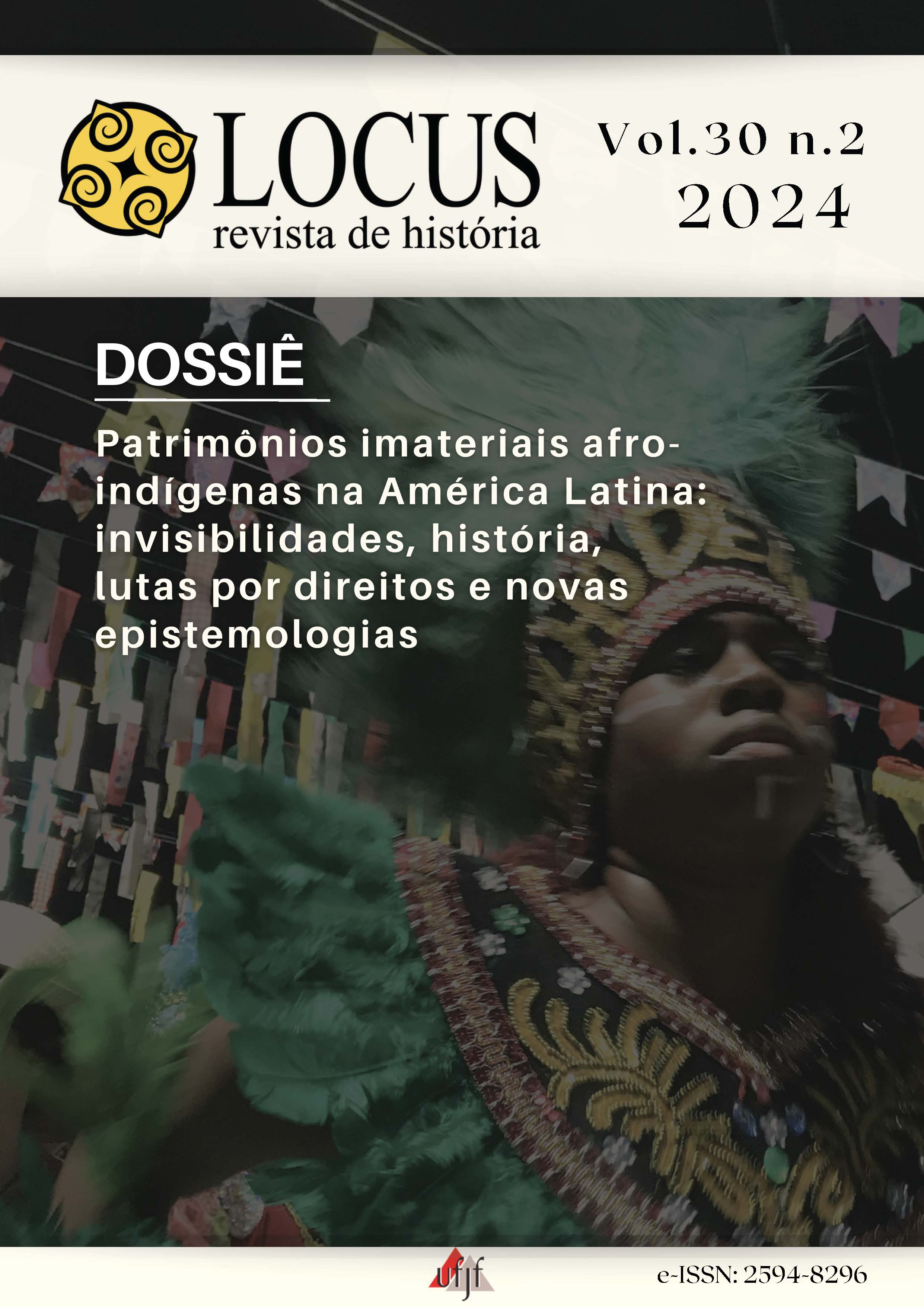Boi-Bumbá of Parintins (AM): : Dramatic Performances of an Afro-Indigenous Tradition
Published 2025-02-02
Keywords
- Boi-bumbá of Parintins,
- dramatic performance,
- Afro-Indigenous
How to Cite
Copyright (c) 2025 Socorro Batalha, Alvatir Carolino da Silva

This work is licensed under a Creative Commons Attribution 4.0 International License.
Abstract
The scholarly and academic classification of the brincadeira de boi by Mário de Andrade is the most widely referenced by those studying these manifestations of popular culture in Brazil. It is considered a dramatic dance, as it is structured around a narrative involving life, death, and resurrection, along with the notion that the ox (boi) is regarded as a national symbol, given the presence of this tradition across various regions of the country. This text presents an anthropological discussion of the dramatic performances in the boi shows in Parintins, where indigenous discourse has prevailed and now influences much of the judging criteria that determine which boi will win the annual competition. Although many bois-bumbás emerged within Afro-Brazilian families after the formal end of slavery, Afro discourse has only recently regained prominence in Parintins’ performances. The founder of Boi Garantido, Lindolfo Monteverde, was an Afro-Indigenous man, as his father, Marcelo, belonged to the Munduruku ethnic group and was known in Parintins, between the 19th and 20th centuries, as a pai de santo (Candomblé priest). Lindolfo's mother, Dona Xanda, was the daughter of a Black woman enslaved until the final days of the slave regime. Therefore, Boi Garantido is an Afro-Indigenous manifestation and, in recent years, has been reclaiming narratives that shape its dramatic performances, reconciling the Afro and Indigenous dimensions that form the foundation of its existence
Downloads
References
- Avé-Lallemant, Robert. Rio Amazonas. Belo Horizonte: Ed. Itatiaia; São Paulo: Ed. Universidade de São Paulo, 1980.
- Andrade, Moacir. Alguns aspectos da Antropologia Cultural do Amazonas. Editora Madrugada, Manaus, 1978.
- Andrade, Mário. Danças Dramáticas do Brasil. Belo Horizonte: Editora Itatiaia; Brasília: INL, Fundação Nacional Pró-Memória, 1982.
- Assunção, Alvadir. Boi-bumbá Corre Campo e outros famas. Manaus: Edições Muiraquitã, 2008.
- Braga, Sérgio Ivan Gil. Os bumbás de Parintins. Rio de Janeiro: Funarte/Editora Universidade do Amazonas, 2002.
- Batalha, Socorro de Souza. “Festival Folclórico de Parintins: um estudo sobre a presença indígena na composição das toadas e a produção do cenário artístico apresentado no bumbódromo (1995-2010)”. Somanlu: Revista de Estudos Amazônicos, Manaus, v. 10, 2 (2013): 85–102.
- Batalha, Socorro de Souza. “Parintinização: os fluxos culturais do Wãnkõ Kaçaueré em festas populares da Amazônia”. Tese de Doutoramento, Universidade Federal do Amazonas, Manaus, 2020.
- Carvalho, Luciana. A graça de contar: um pai Francisco no bumba meu boi do Maranhão. Rio de Janeiro: Aeroplano, 2011.
- Geovane Bastos; Adriano Aguiar. Conteúdo Musical Mai Marakã. Disco Compacto Boi-Bumbá Caprichoso, Viva a Cultura Popular, 2012.
- Monteiro, Mário Ypiranga. Folclore: danças dramáticas. Coleção documentos da Amazônia, 48, Edições Governo do Amazonas, 1972.
- Oliveira, João Pacheco de. O Nascimento do Brasil e Outros Ensaios: Pacificação, regime tutelar e formação de alteridades. Rio de Janeiro: Contra Capa, 2016.
- Saunier, Tonzinho. O magnifico folclore de Parintins. Manaus: Edições Parintins, Governo do Estado do Amazonas, 1989.
- Silva, Alvatir Carolino da. Festa dá trabalho: as múltiplas dimensões do trabalho na organização e a produção de grupos folclóricos da cidade de Manaus. Manaus: Edua, 2011.
- Silva, Alvatir Carolino. “Conflito Patrimonialização: o processo de Tombamento do Encontro das Águas dos rios Negro e Solimões (Manaus-AM)”. Tese de Doutoramento, Universidade Federal do Amazonas, Manaus, 2018.

